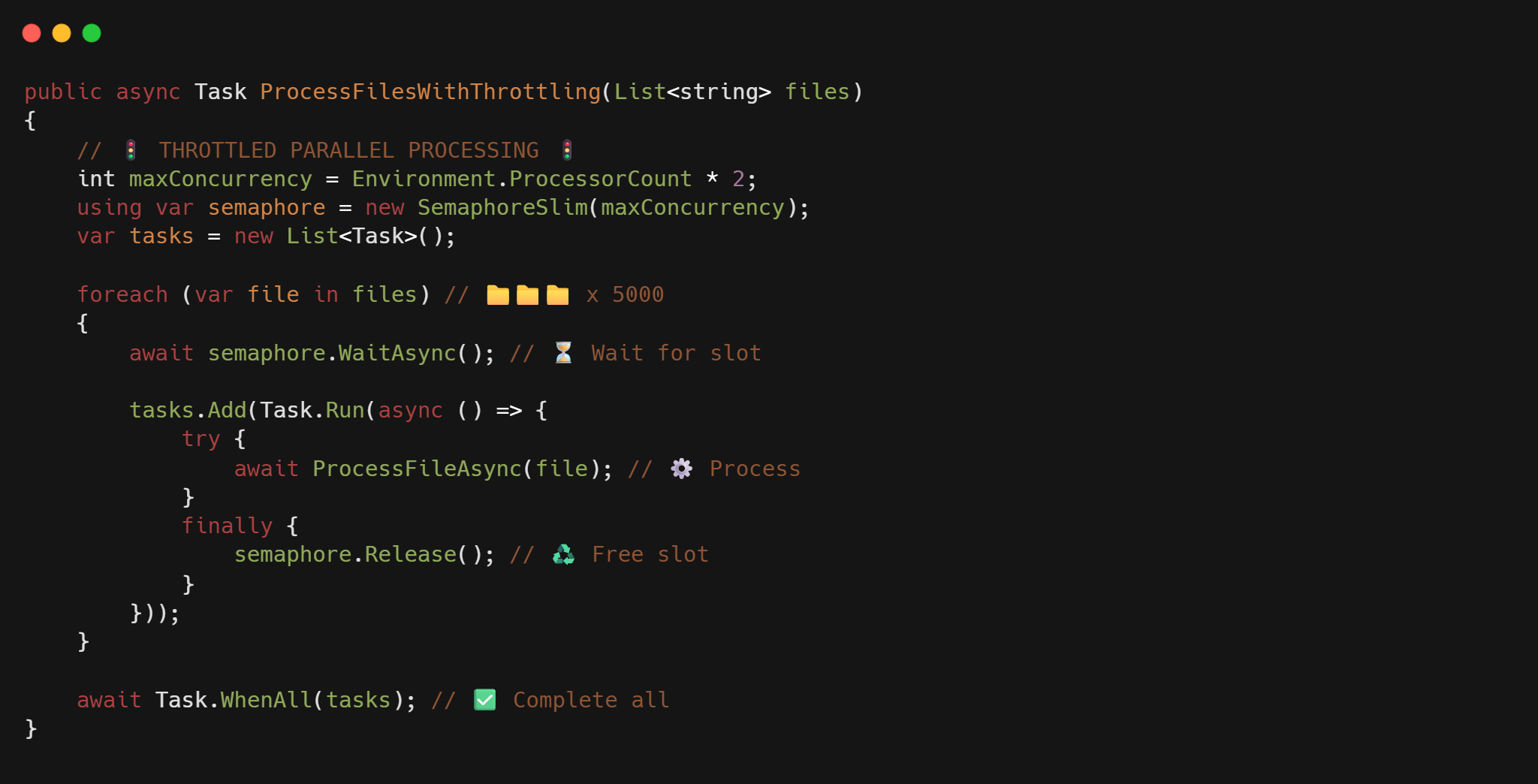TL;DR: A deadlock happens when threads block each other, waiting for resources that never become available. Most deadlocks in C# are caused by inconsistent lock ordering or mixing sync and async code. Recognize deadlocks by symptoms like app hangs, high thread count, or timeout exceptions. Prevent deadlocks by always acquiring locks in a consistent order, minimizing lock duration, and using lock timeouts. Prefer higher-level synchronization tools like SemaphoreSlim or concurrent collections to reduce risk. In async code, avoid blocking calls like .Wait() or .Result - use await all the way. Use debugging tools and thread dumps to detect and analyze deadlocks in production. Design your multithreaded code with prevention in mind; fixing deadlocks after deployment is much harder. A deadlock is one of the hardest bugs to solve in a multithreaded C# application. It doesn’t cause a crash or an obvious exception; it just brings your application to a silent, grinding halt. If you’ve ever seen a service become completely unresponsive under load for no apparent reason, a deadlock might be the culprit.
...
